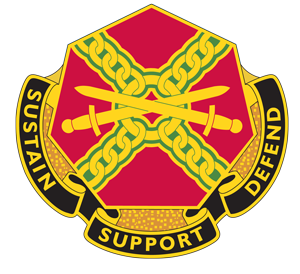Drug testing enables commanders to assess the security, military fitness, good order and discipline of their units. Testing deters soldiers from abusing illegal, illicit and prescription drugs and facilitates early identification of alcohol and/or other drug abuse.
Objective
• DETER Soldiers, including those members on initial entry on AD from abusing drugs (including illegal drugs, other illicit substances, and prescribed medication).
• Facilitate early identification of alcohol and or other drug abuse.
• REFER Soldiers suspected of abuse.
• Referral does not mean enrollment.
• Enable commanders to assess their units, and take appropriate action .
Civilian Random and Pre-employment testing
Civilian Random and Pre-employment testing ensures that workplaces are safe, secure, healthful, productive, and drug-free from illegal use,possession, or distribution of controlled substances by its civilian workforce( to include appropriated and nonappropriated personnel).
Objective
Deter substance abuse
- Identify illegal drug abusers
- Assist employees who are seeking rehabilitation for illegal drug abuse.
- Assist in determining fitness for appointment or retention of TDPs.
All Army civilian samples are tested for Marijuana/ Cocaine/ Amphetamines/Opiates and Phencyclidine (PCP).
Commanders and Unit Prevention Leaders (UPL) Responsibilities
• Educate Service Members
• Encourage those suspected of having a substance abuse problem to seek assistance.
• Use SMART Testing:
- Back-to-back testing (for example, Friday ;Monday).
- Weekend or Holiday sweeps.
- Test during field exercises.
- Test at the end of the duty day.
- During afternoon physical training.
- Pre and Post deployment testing.
- Test throughout the entire month
- Varying the collection days
Smart testing is not predictable to the testing population and uses effective random selection methods.
Commanders should include testing request for SPICE with ALL specimens.
Drug Testing Coordinator
Responsibilities of the Drug Testing Coordinator are to:
• Operate a forensically secure installation drug and alcohol testing program control point
• Serve as the installation subject matter expert on urinalysis collection and testing for military and civilians
• Ensure that urine collections from Soldiers are performed, as required, IAW AR 600-85
• Teach the drug testing procedures portion of the Unit Prevention Leader (UPL) certification course
• Provide pre- and post-deployment training to UPLs.
• Conduct background check on UPL candidates.
• Advise unit commanders and the ADCO on test procedures and results.
• Ensure the substance abuse programs and urinalysis collection procedures of all units are inspected annually.
Unit Prevention Leaders (UPL) Certification course
Unit Prevention Leader (UPL) Certification Training includes instruction on drug testing procedures, instructor training and prevention of alcohol and other illicit drugs.
As the UPL, you are expected to be the Commander’s subject matter expert on all areas of the Army Substance Abuse Program (ASAP), conduct flawless urinalysis collections, assist the Commander in the administration of the ASAP drug testing; and at the Commander’s discretion, provide alcohol and other illicit drug training to the Unit and assist the Commander in the administration of the prevention activities.




